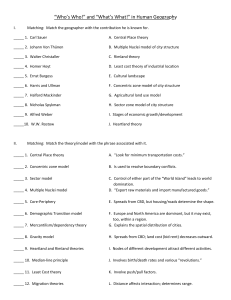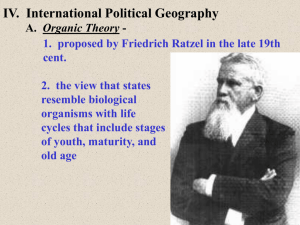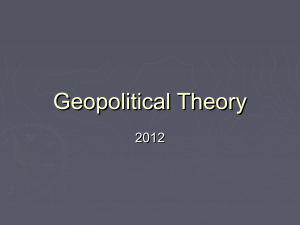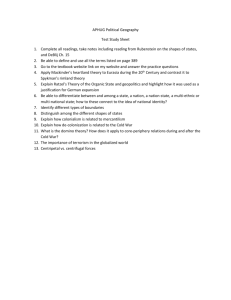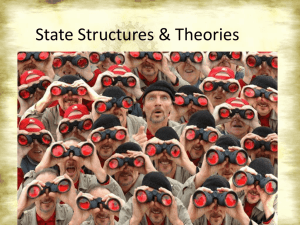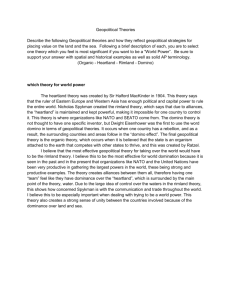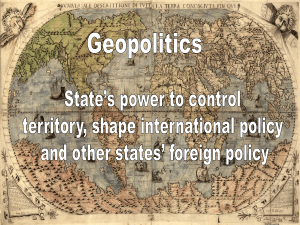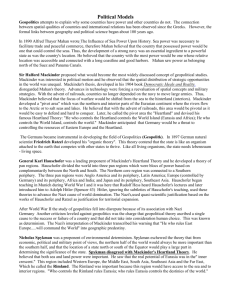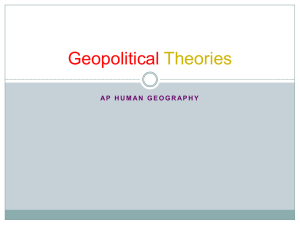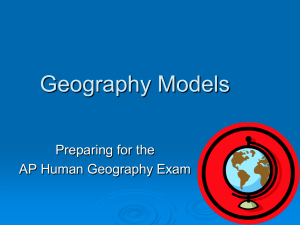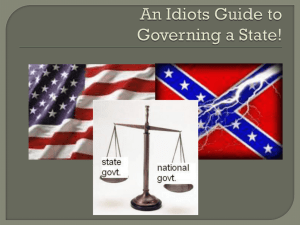V. Geopolitics
advertisement
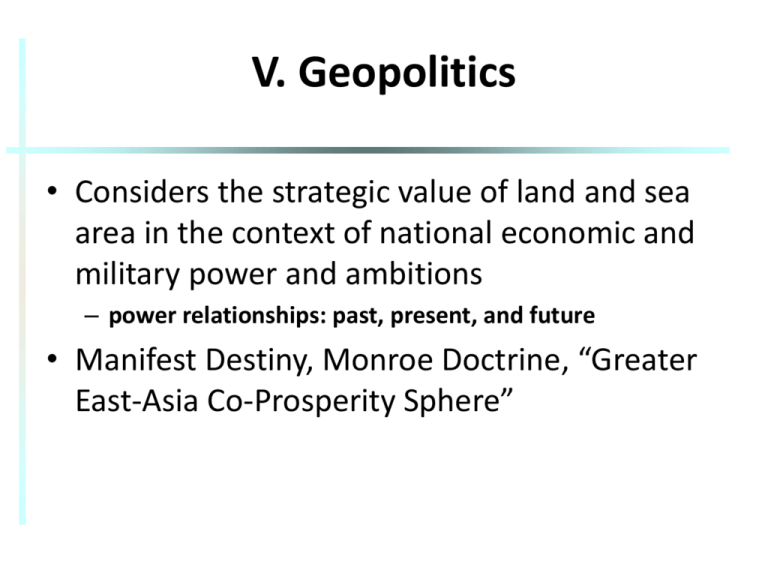
V. Geopolitics • Considers the strategic value of land and sea area in the context of national economic and military power and ambitions – power relationships: past, present, and future • Manifest Destiny, Monroe Doctrine, “Greater East-Asia Co-Prosperity Sphere” Geopolitics – German School Ratzel’s Organic Theory a) Held that a nation which is an aggregate of organisms would itself function and behave as an organism b) Nourishment of organism provided by acquisition of territories and people c) Territory is essential to life. d) Nazi expansion policies based on some of Ratzel’s ideas. Geopolitics – British/American School Sir Halford Mackinder Heartland Theory a)Believed a land-based power, not a sea power, would ultimately rule the world b)Pivot area extended from Eastern Europe to eastern Siberia Mackinder – Heartland Theory • The Heartland is impenetrable • Resource rich • Provided a base for world conquest Mackinder – Heartland Theory –“Who rules East Europe commands the Heartland” –“Who rules the Heartland commands the World Island” –“Who rules the World Island commands the World” Geopolitics Nicholas Spykman - Rimland Theory • Critic of Mackinder • Argued that the Eurasian rim, not its heart, held the key to global power Spykman-Rimland • Fragmented zone • Divided rimland key to balance of world power • Dense population, abundant resources, controlling access to both the sea and the interior Spykman-Rimland • “Who controls the Rimland controls Eurasia” • “Who rules Eurasia controls the destiny of the world” Recent Geopolitical Developments Bipolar World • Post WWII – Heartland = U.S.S.R • U.S. practiced Containment • Confining the U.S.S.R by means of alliances with Rimland NATO • Military intervention CENTO • Domino Theory SEATO Geopolitics Today • Current world events have rendered older geopolitical ideas obsolete • End of the Cold War, Nuclear Technology, and Japan, China, Western Europe becoming world powers • Unilateralism – United States dominance Will this last??? U.S. Foreign Policy Strategies/Principles 1. 2. 3. 4. Isolationism-state tends to domestic affairs only Realism-take active role in international affairs Neo-isolationism-keep foreign involvement to a minimum (only when necessary) Idealism-foreign involvement for good of all countries
